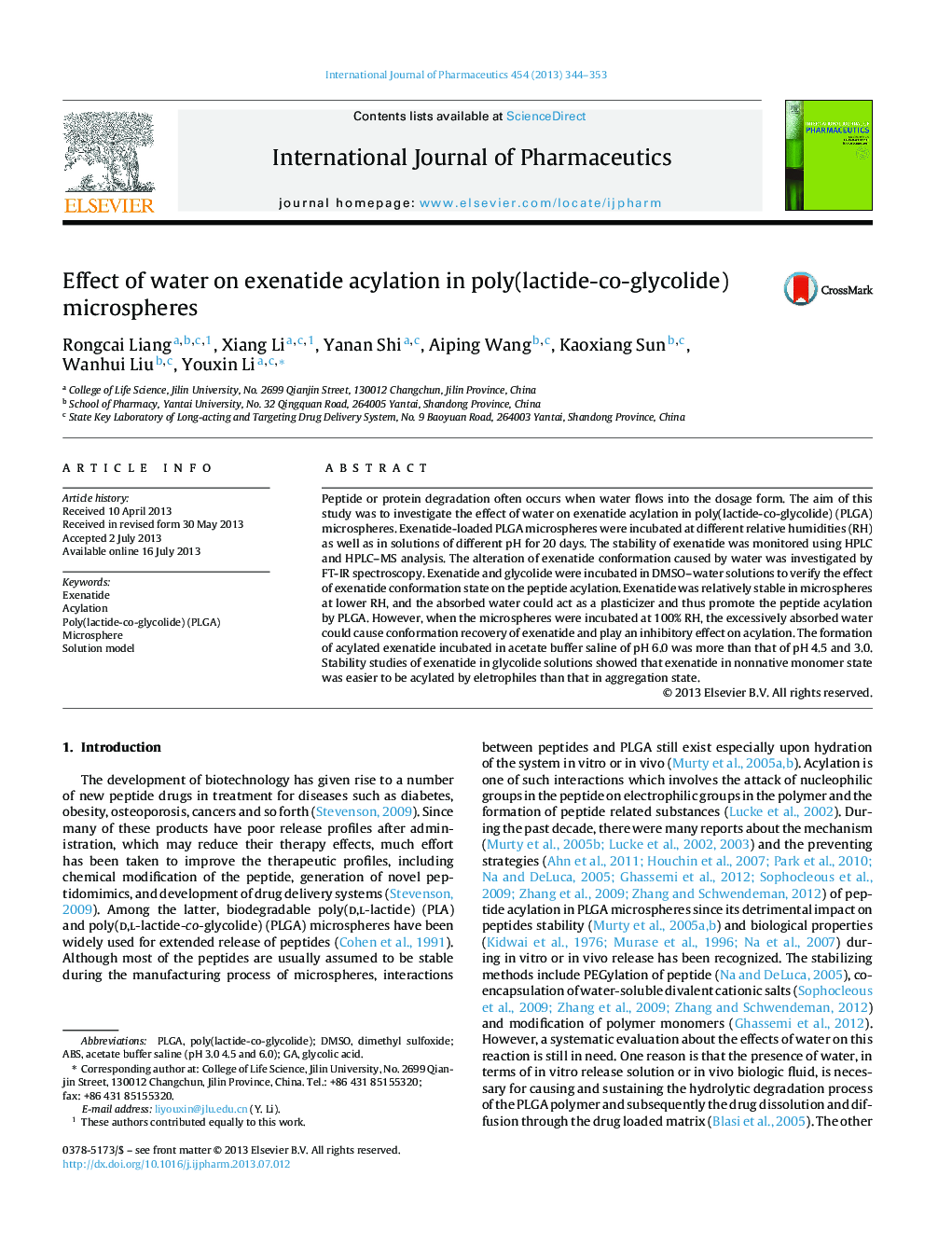| Article ID | Journal | Published Year | Pages | File Type |
|---|---|---|---|---|
| 2502349 | International Journal of Pharmaceutics | 2013 | 10 Pages |
Peptide or protein degradation often occurs when water flows into the dosage form. The aim of this study was to investigate the effect of water on exenatide acylation in poly(lactide-co-glycolide) (PLGA) microspheres. Exenatide-loaded PLGA microspheres were incubated at different relative humidities (RH) as well as in solutions of different pH for 20 days. The stability of exenatide was monitored using HPLC and HPLC–MS analysis. The alteration of exenatide conformation caused by water was investigated by FT-IR spectroscopy. Exenatide and glycolide were incubated in DMSO–water solutions to verify the effect of exenatide conformation state on the peptide acylation. Exenatide was relatively stable in microspheres at lower RH, and the absorbed water could act as a plasticizer and thus promote the peptide acylation by PLGA. However, when the microspheres were incubated at 100% RH, the excessively absorbed water could cause conformation recovery of exenatide and play an inhibitory effect on acylation. The formation of acylated exenatide incubated in acetate buffer saline of pH 6.0 was more than that of pH 4.5 and 3.0. Stability studies of exenatide in glycolide solutions showed that exenatide in nonnative monomer state was easier to be acylated by eletrophiles than that in aggregation state.
Graphical abstractFigure optionsDownload full-size imageDownload high-quality image (61 K)Download as PowerPoint slide
